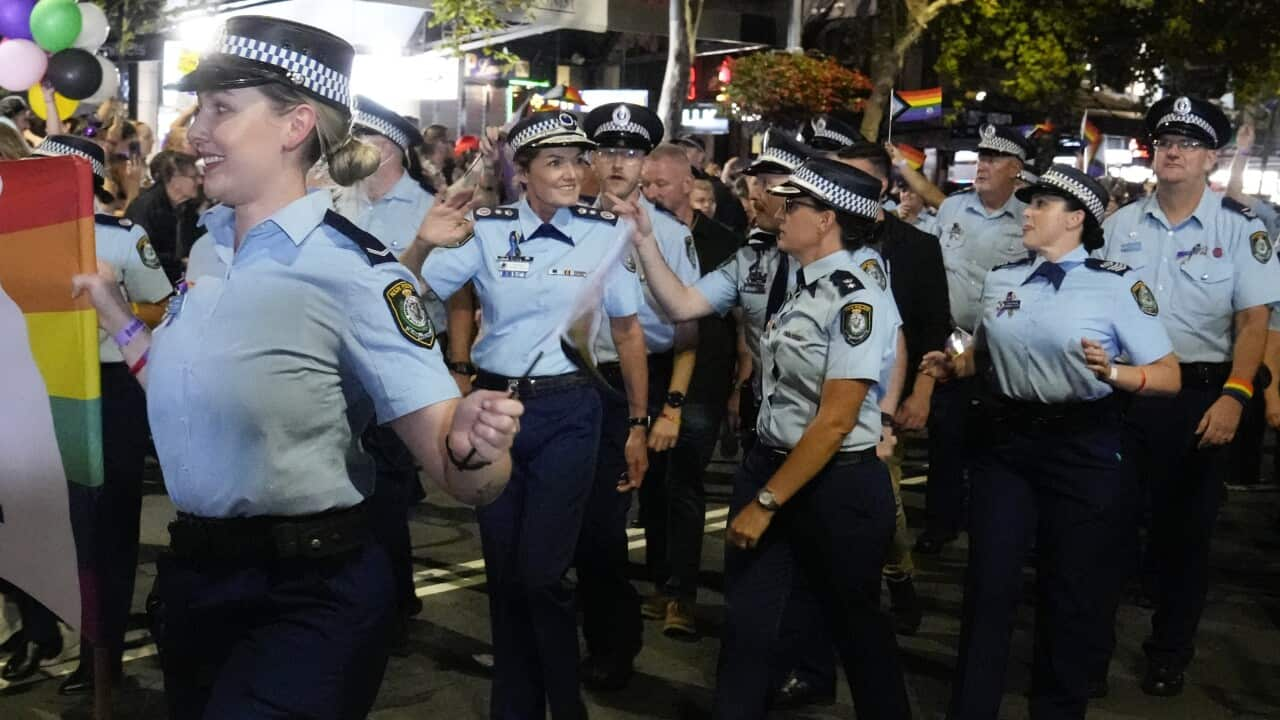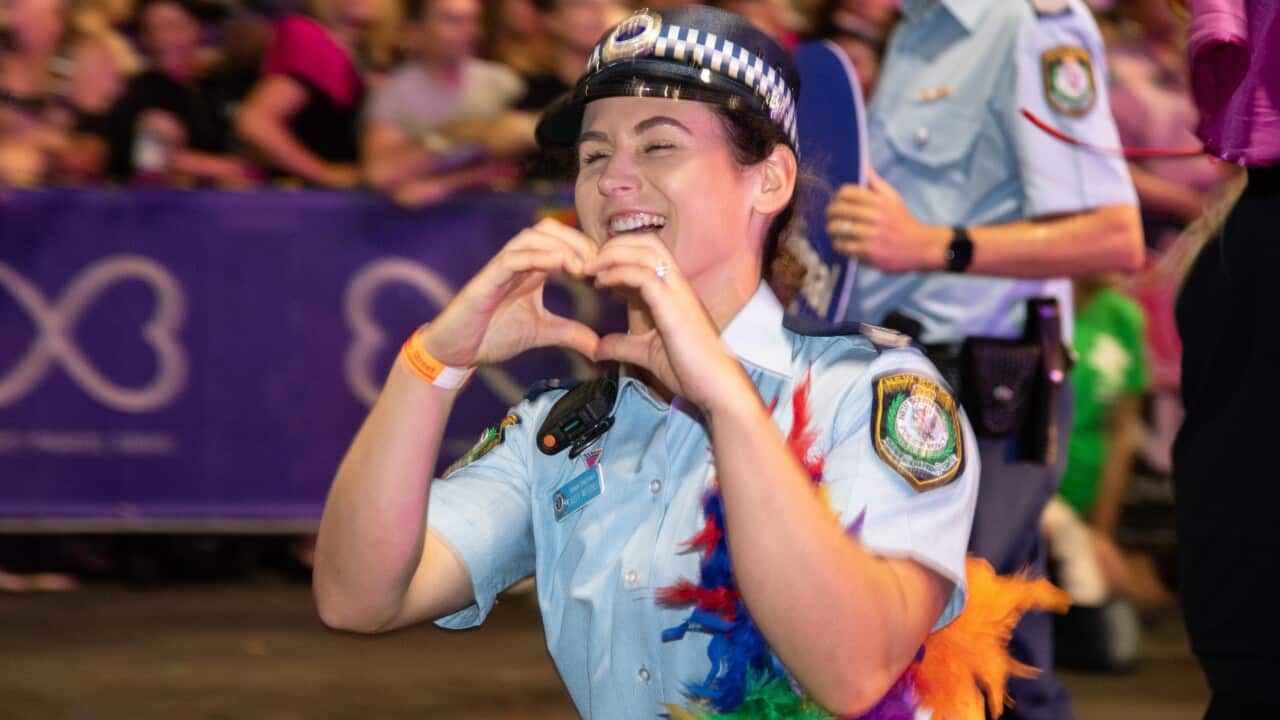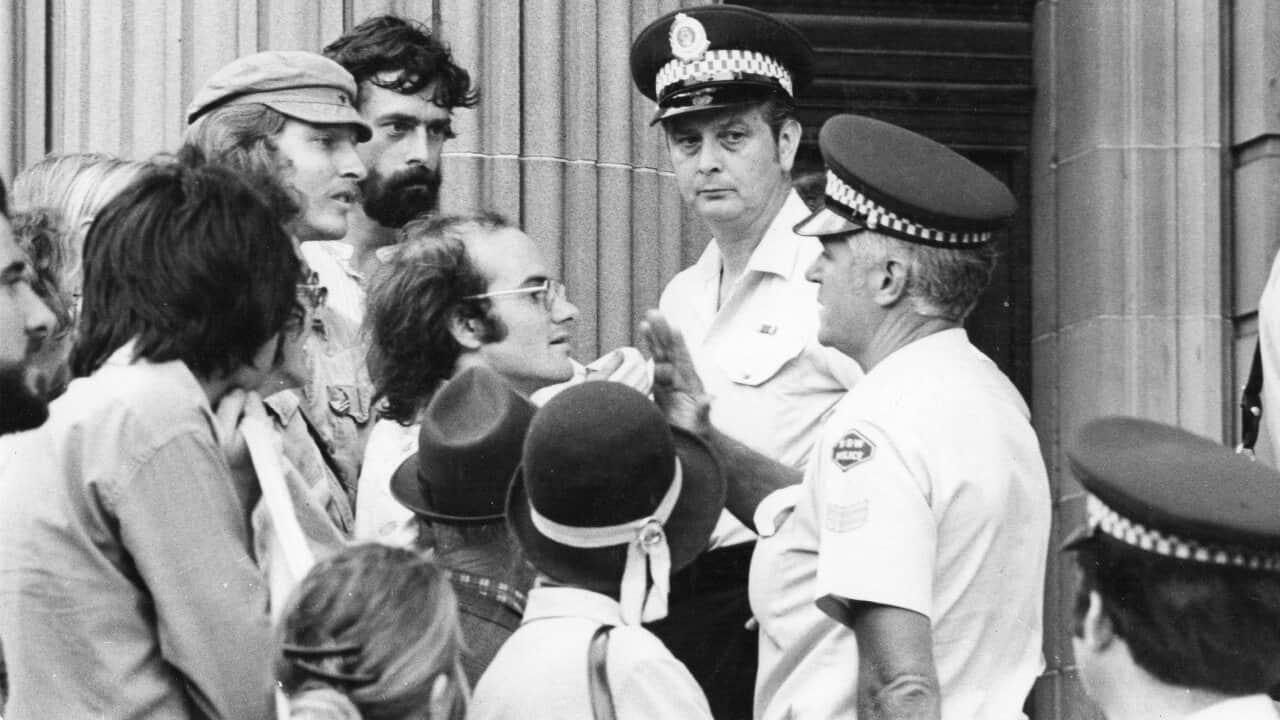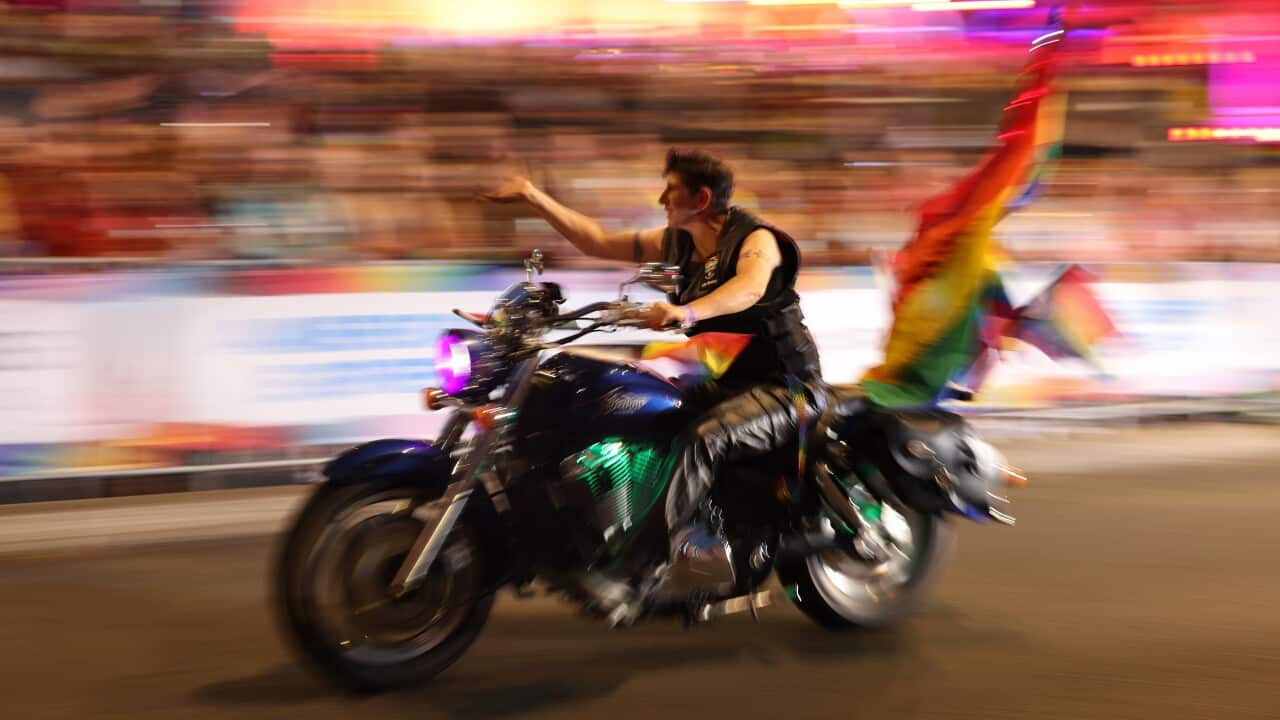Police will continue to march in the Sydney Gay and Lesbian Mardi Gras parade after a bid to ban their presence was narrowly voted down.
Three different proposals were put to the Mardi Gras annual general meeting on Saturday morning to determine whether NSW Police officers would be allowed to march in the parade.
Saturday's annual general meeting hosted by parade organisers decided 493 votes to 459 against barring police from marching until they "demonstrate a commitment to improving relationships with LGBTQIA+ communities".
The second motion from Rainbow Labor would have allowed police officers to march on the proviso that they did so out of uniform and without their service weapons. This was also narrowly defeated.
A third defeated motion from the activist collective Pride in Protest sought to ban police from marching altogether.
Despite the three motions being defeated, Pride in Protest's lead candidate for election to the Mardi Gras board is optimistic a ban will win majority support in the future.
"Our community is disappointed that there has been a loss, but we know it's a question of when," Damien Nguyen told SBS News.
"It's a big step forward."
Nguyen claimed the proposals were narrowly voted down as a result of the NSW government's support of police in the parade.
Police welcome vote results
A NSW Police spokeswoman welcomed the outcome of the annual meeting, saying the police force valued its "ongoing close relationship" with the organisers of
"The NSW Police Force has been marching in the Sydney Gay and Lesbian Mardi Gras since 1998, and for the LGBTQIA+ staff and allies within the NSW Police Force as well as their friends and family, this remains an important and significant annual event," she said.
"The NSW Police Force is dedicated to supporting LGBTQIA+ communities and takes pride in its role as a community leader for inclusion and diversity."
Additionally, Independent Sydney MP Alex Greenwich also supported the vote: "I thank the membership of Mardi Gras for voting to ensure we continue to have an inclusive parade that welcomes LGBTQ+ police."
"There is no denying the police have more work to do to improve on their brutal past towards the LGBTQ community, but I’m confident they are working hard on this and focused on improving LGBTQ+ safety."
The motion to remove police from the Mardi Gras board received 459 votes — about 46.9 per cent of those who took part.
Pride in Protest's motion to remove police completely from the parade received 425 votes — about 44.8 per cent — Nguyen told SBS.
While the motion was not passed at Saturday's AGM, Nguyen says it's the closest they've come to passing such a motion.
"The community will continue to fight for police to hopefully be out of Mardi Gras. It's clear that this is the closest vote we've ever seen to a vote like this passing at the AGM."
Nguyen said that, as far as he knew, the majority of the community didn't think police belonged in the march or that politicians should intervene in LGBTIQ+ issues.
"This is the motion about inclusion. The exclusion of police is the inclusion of marginalised communities," he said.
"I don't think it's correct for a premier who is not part of the LGBTQIA+ community … to comment on things like this. I actually think it's highly inappropriate that they would have such comments since they want to be a part of our parade once a year, but then fail to cast any legislation for our rights."
Earlier this year, Mardi Gras conducted community consultations and found that 54 per cent of those surveyed believed police should not be in the march.
Policing at the Mardi Gras parade
Nguyen said members of the community also hope to see a smaller police presence outside of the Mardi Gras march.
"Every year, as a community member, I see and experience instances of violence at the hands of police.
"One of the very clear things from [community] discussions was … the disgusting amount of sexual assault through strip searches and pat-downs that happened at the parade itself," Nguyen said. "Police have been a threat to the queer community."
A at Mardi Gras events in 2023 found it to be "excessively aggressive, invasive and in some cases, potentially unlawful".
Policing was found to be characterised by invasive questioning of patrons, a dubious use of drug detection dog patrols, humiliating and potentially unlawful searches, and instances of use of force, the authors found.
From the to the assault of teenager Jamie Jackson Reed at the 2013 parade, the event has a long and complicated relationship with law enforcement.
In response to a request for comment on these issues, NSW Police told SBS News that the force "values its ongoing close relationship with the Sydney Gay and Lesbian Mardi Gras to ensure the safety and success of its events".
Calls for the ban were reignited this year after the , leading to officers beings asked not to wear their uniform during the 2024 Mardi Gras parade.




